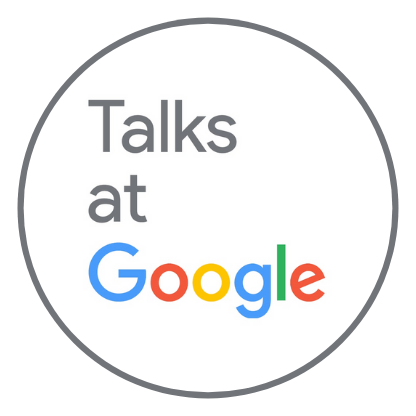Focus: Hidden Driver of Excellence | Daniel Goleman | Talks at Google
Reference: Talks at Google. (2013, December 06). Focus: the Hidden Driver of Excellence | Daniel Goleman | Talks at Google [Video]. YouTube.
We Make Your Education Count

Get the Credit You Deserve and Become the Most Attractive Job Candidate by Earning and Posting A+ Badges to Your Linkedin Profile.
Sign Up to Get Started at Accredicity
|
Unlock the power of excellence with Daniel Goleman's new book: "Focus: the Hidden Driver of Excellence." Daniel Goleman, the world-renowned expert on topics relating to emotional intelligence, is the author of the best-selling book "Emotional Intelligence," and his new book "Focus–the Hidden Driver of Excellence." Goleman talks about how skillfulness over attention is the foundation of all higher cognitive and emotional abilities and how attention creates the conditions for personal excellence. He emphasizes the importance of paying more attention to our attention in order to maintain or even increase our capacity for it, and how this relates to emotional intelligence. Goleman also discusses the floor effect, which occurs when IQ is used as a criterion for admission to a university, and how competence models are used to determine the competencies that mark the stars in any job role. Learning OutlineMain Points to Learn from "Focus: the Hidden Driver of Excellence" by Daniel Goleman: 1. Attention is a vital capacity that is under siege. Instructional ContentFocus: the Hidden Driver of Excellence is a fascinating talk given by world-renowned author and expert Daniel Goleman. In this talk, Goleman explains how skillfulness over attention is the foundation of all higher cognitive and emotional abilities. He explains how attention is often taken for granted, but is vital for personal excellence and development. Through his conversation with Meng Tan, Goleman discusses how attention is under siege today and is often taken away from us due to the endless seductions of technology. Goleman goes on to explain Herbert Simon’s statement that “what information consumes is the attention of its recipients,” and how this applies to our current state. He explains how this has led him to revise his thinking on emotional intelligence, and how our attention needs to be paid more attention to if we are to increase our capacity for it. Additionally, Goleman talks about the floor effect and how it applies to intelligence, and how excellence is often defined by things other than IQ. He also explains competence modeling and what world-class companies look for in their hires and promotions. In summary, Focus: the Hidden Driver of Excellence is an important talk that emphasizes the importance of attention in our lives. Goleman discusses how attention is often under attack from technology seductions, and how it is vital for personal excellence and development. He also explains the floor effect, competence modeling, and how it applies to intelligence. Attention is an often undervalued, but vital, part of our lives, and this talk provides insight into why it is important and the implications it has on our lives. Cognition
|

Daniel Goleman is an expert on emotion intelligence and an amazing author. He has written more than 10 books, and his book "Emotional Intelligence" sold 5 million copies. He wrote a new book called "Focus: the Hidden Driver of Excellence" which explains that skillfulness in paying attention is the foundation of higher cognitive and emotional abilities. Dan is worried that our attention is being taken away from us by technology, which can be distracting and seductive. He explains that attention is like a muscle: we can train it to be stronger, and this is important for achieving personal excellence. Video Quotes1. "Attention is so important that in 'Search Inside Yourself', it is the first thing we train. The first thing we train is attention." - Daniel Goleman 2. "What information consumes is the attention of its recipients. Hence, a wealth of information creates a poverty of attention." - Herbert Simon 3. "If you want to hire the best person for a job, any job in any organization, don't look at their IQ. Don't look at their GPA. Don't look at their personality profile. Look at people in your own organization who hold the role you're hiring for." - David McClellan Related Quotes"It's not so much that people lack the will to do something, but rather they lack a way to do it." - Daniel Goleman "We don't just have to know how to focus; we have to learn how to flexibly switch focus as the situation demands." - Daniel Goleman "We have to learn how to pay attention to the right things in the right way at the right time." - Daniel Goleman Competencies1. Emotional Intelligence Learning Outcomes1. Understand the concept of the floor effect (Knowledge) Sample Answers1. In this video, I learned that Herbert Simon, a Nobel Prize winner, stated that "what information consumes is the attention of its recipients." This means that the more information we have, the less attention we are able to give to it. 2. I also learned that there are two types of attention: voluntary attention, which is when we decide to concentrate on something, and seductive attention, which is when we are pulled away from our work. Technology is increasingly being used to seduce our attention away from our work. 3. Finally, I learned that competence modeling is used to identify the top 10% of workers in a company by comparing them to average workers, and determine the distinguishing competencies that make them stand out. This could include emotional intelligence, among other things. Daniel GolemanDaniel Goleman is a science journalist, psychologist, and New York Times best-selling author of Emotional Intelligence. He is an internationally known author and speaker in the fields of psychology, emotional intelligence, and leadership. He is a board member of the Mind & Life Institute and a senior faculty member at the Institute of Noetic Sciences. He is also the co-founder of the Collaborative for Academic, Social, and Emotional Learning (CASEL) at the University of Illinois. He is an expert on Hidden Driver of Excellence as his research and work focuses on exploring the science of emotions, motivation, and behavior, as well as their implications for personal, social, and organizational development. Daniel Goleman is associated with the Mind & Life Institute and the Collaborative for Academic, Social, and Emotional Learning (CASEL). Mind & Life Institute and CASEL. Learning DesignThese three competencies are important for learners to develop in order to understand and apply cognitive processes. Emotional intelligence, the ability to understand and manage one’s own emotions, is essential in order to effectively be able to control our own thoughts and behaviors. Mindfulness, or the ability to be aware of our own thoughts, feelings, and behaviors in the present moment, is important for being able to recognize and accept our thoughts and feelings as they arise. Attention to detail is important for being able to accurately process and remember information. The best way to build these competencies is to use a framework that encourages learners to reflect on their own experiences and emotions, and to practice active, mindful listening. Learners should be given opportunities to practice and apply their skills through activities such as role-play, simulations, and problem-solving. They should also be allowed to discuss their experiences with each other in order to build empathy and foster collaboration. Finally, learners should be encouraged to use metacognitive strategies such as self-reflection and self-assessment, which will help them to become more aware of their own thoughts, feelings, and behavior. AssessmentQ: According to Daniel Goleman, what is the most reliable predictor of success in an organization? A. IQ QuestionsCommon Hypothetical Questions Real-Life Examples and Scenarios KeywordsEmotional Intelligence, Intelligence Capacity, Attentional Circuitry, Cognitive Complexity, Competence Modeling, Leader's Focus, Vital Capacity Facts1. Daniel Goleman is an internationally recognized expert on the topics of emotional intelligence and leadership. Trends1. Create an online course on developing and maintaining focus by leveraging the latest neuroscience findings. SourceThis learning instructional guidance was formulated using the GPT-3 language model created by OpenAI. Share#Focus - the hidden driver of excellence. @DanielGoleman explains why attention is the foundation of all higher cognitive & emotional abilities & how to harness it to reach personal excellence. #emotionintelligence #mentalhealth #mentalwellness #attention ☀️ @Accredicity |








 38 Creds - Cognition
38 Creds - Cognition



